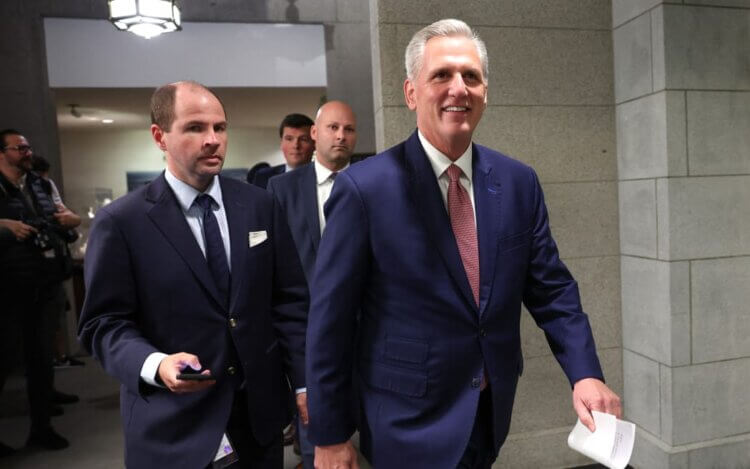The House of Representatives easily backed a bill to postpone the country’s debt limit until January 1, 2025, as lawmakers hurried to avoid a catastrophic collapse.
The debt ceiling is a spending restriction established by the United States Congress that governs how much money the government can borrow. Failure to raise it above the present threshold of approximately $31.4 trillion by June might result in the United States defaulting on its debt.
This would imply that the government would be unable to borrow further funds or pay all of its payments, as well as wreaking havoc on the global economy by altering prices and mortgage rates in other countries.
On Wednesday night, 149 Republicans and 165 Democrats voted in favor of the legislation, while 71 Republicans and 46 Democrats opposed it, reports CNN.
The final voting count was 314 to 117.
The legislation bill must now be passed by the Senate before it can be sent to President Joe Biden for signature.
In the Senate, any single senator can derail a quick vote, and it is unclear when the final vote will take place.
Lawmakers are racing against the clock to avoid the country’s first-ever default on June 5, the date on which the Treasury Department has stated that it would no longer be able to pay all of the country’s obligations in full and on time, a situation that may spark worldwide economic disaster.
Taking to Twitter late Wednesday, President Biden said: “Tonight, the House took a critical step forward to prevent a first-ever default and protect our country’s hard-earned and historic economic recovery.
“I have been clear that the only path forward is a bipartisan compromise that can earn the support of both parties. This agreement meets that test.
“I urge the Senate to pass it as quickly as possible so that I can sign it into law, and our country can continue building the strongest economy in the world.”
On his part, Republican House Speaker Kevin McCarthy said: “I have been thinking about this day since before my vote for speaker because I knew the debt ceiling was coming. I wanted to make history.”
Suspending the debt limit until 2025 removes the prospect of default until after the presidential election, according to CNN.
Aside from raising the debt ceiling, the package freezes non-defense spending, increases work requirements for some food stamp recipients, and claws back some Covid-19 relief funding, among other policy elements.
Over the weekend, the White House and House Republicans announced a bipartisan debt-limit agreement.
The Congressional Budget Office stated in a letter to the House Speaker on Tuesday night that the package will lower budget deficits by $1.5 trillion over the next ten years.
If the bill is enacted, “mandatory spending would, on net, decrease by $10 billion, and revenues would, on net, decrease by $2 billion over the 2033 period”, the CBO wrote in the letter.
“As a consequence, interest on the public debt would decline by $188 billion,” it said, adding that discretionary spending would be reduced by a projected $1.3 trillion over the 2024-2033 period.
Source:OCN







 Finance
Finance







